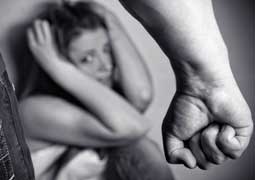
After the sixth Parliament hosted a successful Women’s Parliament in August, the National Assembly (NA) held a debate on the topic “National Women’s Day: Gender and Institutionalism – Towards Strengthening the National Gender Machinery”.
The discussion comes amid countrywide outrage following the killing of women in the hands of men. The recent killing of the University of Cape Town student, Ms Uyinene Mrwetyana, dominated the discussions, with the condemnation of femicide and calls for the enhancement of the fight against gender-based violence, which was called a national crisis.
The debate was opened by the Minister for Women, Youth and Persons with Disabilities, Ms Maite Nkoana-Mashabane, with tributes to the 19-year-old Mrwetyana, boxing champion Ms Leighandre “Baby Lee” Jegels, who was shot by her boyfriend – and Ms Lynette Volschenk and all the women killed recently
Ms Maite Nkoana-Mashabane told the delegates that she was mentioning just a few of the women who were killed during Women’s Month (August), “we have counted up to 30 women thus far, whose names were in the media, including social media to indicate that this is a national crisis”.
The Minister proposed, as a contribution towards a solution, that the country needs to involve several institutions to end gender-based violence, saying the most important institution is the community. “The community is a structure that reinforces gender stereotypes and if abusive behaviours are frowned upon, challenged and not tolerated, we will have young men who will grow up respecting women in their diversity, and these will not escalate in other institutions,” she said.
The Minister added that other key institutions will be put in place to end gender-based violence and rid the society of the killing of women, so that criminals will know that they have no place to hide and will be punished severely.
Ms Nkhensani Bilankulu, the Co-Chairperson of Parliament’s Multi-Party Women’s Caucus, called on the country to stand up and fight against the killing of women and children.
She said: “Let us all stand up, our nation is dying, our children and women are kidnapped, raped and killed every day, what have we done? Where are women and children supposed to live, on the streets, in their homes, church? Even at the Post Office they are raped, God have mercy, it is enough.”
She also told Members of the NA that the Multi-Party Women’s Caucus will propose amendments to existing laws, to make provisions for harsher sentences for perpetrators of violence against women and children, with a life sentence as the minimum.
Democratic Alliance Member of Parliament, Ms Nazley Sharif, also said the country is facing a crisis of gender-based violence. According to her, femicide dominates news in South Africa and that there is no safe space for women, they experience violence everywhere, including in their homes.
Ms Nqabayomzi Kwankwa of the United Democratic Movement said most of the country’s policies and laws on gender, only exist in name, women still find themselves extremely marginalised in the economy. “There is a need for an audit on our current laws to see what works and what doesn’t – then we can begin the process of charting the way forward,” he said.
He also questioned the effectiveness of women’s ministry and said something must be done to make it more effective and fight for the emancipation of women. Mr Nkwankwa said that campaigns against gender-based violence must become a common feature in political party constituency work. “It is not a women’s battle; it is a battle for us all South Africans,” he said.
By Sakhile Mokoena
4 September 2019

